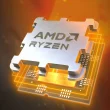Microsoft has confirmed there are no plans for a mid-generation hardware update for the Xbox Series X|S, despite growing speculation about the gaming industry’s trends. Phil Spencer, Microsoft’s Head of Gaming, stated during multiple interviews that the company remains focused on enhancing the existing hardware rather than introducing a new console. Phil Spencer has said that more Xbox consoles are on the way, but gamers shouldn’t expect an Xbox Series X Pro to compete with the new PlayStation 5 Pro. He emphasised that developers need time to fully utilise the current hardware before a new system is considered.
Spencer highlighted the stability of the current generation as critical for the gaming ecosystem. He explained that frequent hardware upgrades, like mid-generation refreshes, could create challenges for developers, who would need to optimise games for multiple specifications. Spencer highlighted that mid-generation upgrades can complicate game development, forcing studios to target multiple specifications, which increases complexity. He prefers hardware updates to have a distinct purpose, offering significant advancements compared to their predecessors.
Spencer also noted that consoles are already facing pricing and performance pressures, making their evolution slower than PCs in the same time frame. Microsoft it seems, are going to channel efforts into improving the Xbox user experience through software updates and features like expanded storage options for the Xbox Series S. Spencer noted that any new hardware should offer a “demonstrably different” experience compared to its predecessor, ensuring it justifies its existence in the market. He also pointed out the long planning cycles for consoles, which lock hardware specifications years before release.
Microsoft’s strategy reflects a broader industry trend, where hardware updates are no longer the sole focus of growth. Instead, the company aims to position Xbox as a service-driven platform with innovations like cloud gaming and all-digital options, ensuring it adapts to the shift toward digital gaming and subscription models. Game Pass continues to be a cornerstone of this vision, allowing gamers access to a vast library of titles across consoles, PCs, and even mobile devices.






